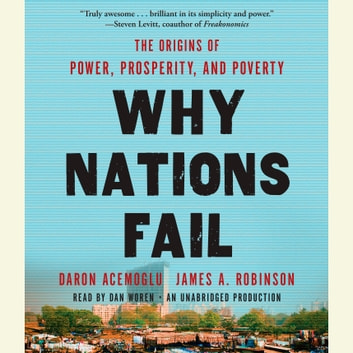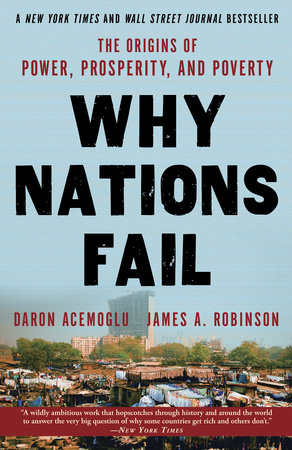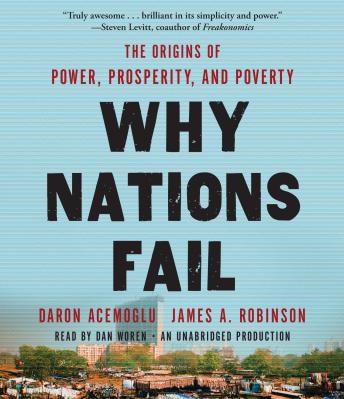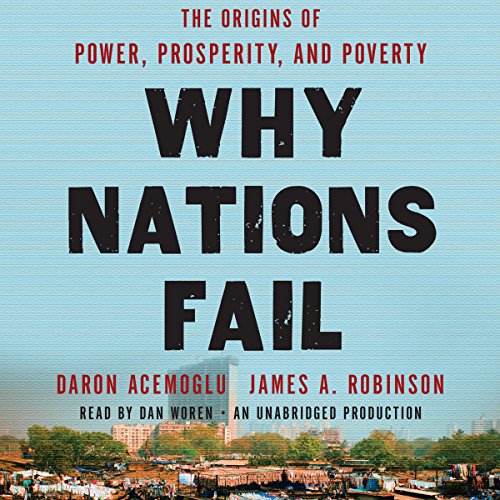Daron Acemoglu’s “Why Nations Fail” audiobook explores the root causes of economic disparities between nations. It argues that political and economic institutions shape the fate of countries.
“Why Nations Fail” by Daron Acemoglu and James A. Robinson delves into the reasons behind the success or failure of nations. The authors emphasize that inclusive political and economic institutions lead to prosperity. Extractive institutions, on the other hand, result in poverty and stagnation.
This audiobook presents historical examples and detailed analysis to support its claims. It is a compelling listen for those interested in economics, history, and political science. The clear narration makes complex concepts accessible. This audiobook challenges conventional wisdom and provides fresh perspectives on global inequality.
The Genesis Of ‘why Nations Fail’
Daron Acemoglu is a renowned economist. He studied at the University of York. Later, he earned his PhD from the London School of Economics. His research focuses on political economy. He explores why some nations succeed. Others fail despite having resources.
James Robinson is a political scientist. Acemoglu and Robinson teamed up for many years. They combined their expertise to write ‘Why Nations Fail’. Their book explores the impact of institutions on nations. They believe institutions shape a nation’s success. The audiobook brings these ideas to life.

Core Concepts And Theories
Inclusive institutions give everyone a chance to succeed. They provide fair laws and good education. People feel safe to start businesses. Extractive institutions take power from people. They make rules that help only a few. These rules often hurt most people. Nations with inclusive institutions grow rich. Nations with extractive institutions stay poor. The book explains this idea in detail.
Political power shapes a country’s success. When leaders care about their people, the country grows. They make laws that help everyone. This leads to more jobs and better lives. Bad leaders make rules that help only them. This makes people poor and unhappy. The book shows many examples of this. Good leaders create wealth for the whole nation. Bad leaders keep it for themselves.
Case Studies From The Audiobook
North Korea and South Korea share the same history. Yet, they are very different today. North Korea is poor and restrictive. South Korea is rich and free. This shows the power of institutions. Strong institutions create wealth. Weak institutions lead to poverty.
Why are some nations rich and others poor? It is not just about geography. Good policies and strong institutions matter. Nations with inclusive institutions thrive. Those with extractive institutions fail. This explains the difference between rich and poor countries.

Critical Reception And Impact
Why Nations Fail received praise from scholars. Many experts agree with the book’s ideas. People found it easy to understand. The book is also popular with the general public. Many readers left positive reviews. They found the audiobook engaging and insightful. It has sparked many discussions online.
The book has impacted policies worldwide. Some leaders use its ideas to shape laws. Economists also study its theories. They find the insights valuable. The audiobook helps spread these ideas. It makes complex topics simpler. Now, more people understand economic issues. This leads to better policy decisions.

Conclusion
Daron Acemoglu’s “Why Nations Fail” audiobook offers valuable insights into economic disparities. Understanding these principles can help create prosperous societies. This audiobook is a must-listen for anyone interested in global economics. Dive deep into this masterpiece and discover the factors that shape nations’ destinies.
Engage with this content to enrich your knowledge and perspective.



